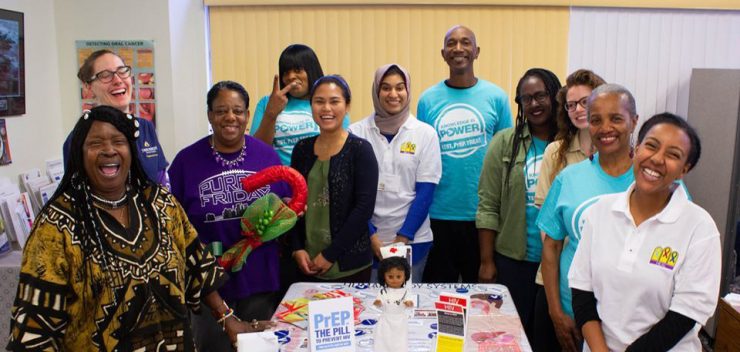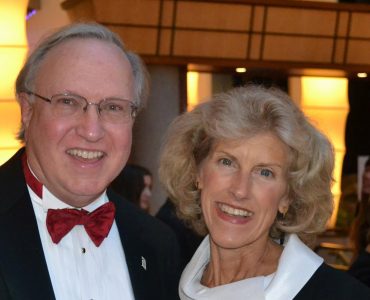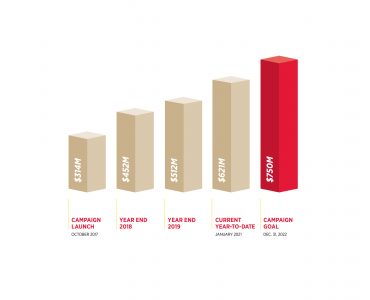As the COVID-19 pandemic unfolded in early 2020, the PATIENTS Program at the University of Maryland School of Pharmacy (UMSOP) quickly pivoted its programming to continue its work in rebuilding trust and confidence in patient-centered medical research, particularly among African Americans and other underserved populations.
Keeping its mission alive to inform the local community about research during the pandemic, the PATIENTS Program launched a series of biweekly Facebook Live events — alternating between “Real Time with Rodney,” which addressed COVID-19 and research, and “BJ’s Corner” for seniors. These programs reached more than 1,500 people, with 78 percent of the viewers being from the Baltimore area.
University of Maryland, Baltimore (UMB) President Bruce E. Jarrell, MD, FACS, was one of the most popular guests on “Real Talk with Rodney,” which is hosted by Rodney Elliott, engagement specialist at UMSOP. Other guests included Randal Pinkett, PhD, MBA, from BCT Partners; Joseph Richardson, PhD, from the University of Maryland, College Park; and community partners such as HIV/AIDS activist Gail Graham.
In addition, while physical distancing limited the ability to conduct research, the PATIENTS Program worked with the UMB Human Research Protections Office to conduct virtual focus groups and interviews. This allowed critical research to continue that is supported by the U.S. Food and Drug Administration (FDA), the National Institute on Aging, the Patient-Centered Outcomes Research Institute, and other funders. Based on this success, C. Daniel Mullins, PhD, executive director of the PATIENTS Program, and his postdoctoral fellows were invited by the FDA to present best practices for engaging patients in virtual focus groups.
Several of the PATIENTS Program’s community partners have been collaborators for a decade or more, so the COVID-19 pandemic was not the first challenging time. Baltimore’s civil unrest in 2015 after the death of Freddie Gray also altered the process of collaborative research and community engagement. In reflecting on the PATIENTS Program’s successful pivot during times of crisis, Mullins believes Booker T. Washington said it best: “Success is to be measured not so much by the position that one has reached in life as by the obstacles which he has overcome.”
Mullins credits the many community leaders of partnering organizations for supporting the PATIENTS Program’s longstanding relationships with West Baltimore residents. These relationships are integral to why the program’s community-engaged research remains authentic and successful. Rev. Dr. Franklin Lance, senior pastor of Mount Lebanon Baptist Church in Baltimore, represents one such partner.
“Our congregants and community face numerous health challenges, and we seek to be a resource of relevant information for our people,” Lance said. “We have witnessed your sincere commitment to the diverse communities in which you conduct research, and, for this reason, we are delighted to partner with the PATIENTS Program.”
The program started in 2013 as one of seven health services research institutions funded through a five-year infrastructure development grant from the Agency for Healthcare Research and Quality to develop capacity for patient-centered outcomes research. Now, the PATENTS Program has generated approximately $44.5 million in new grants and contracts — an 890 percent return on investment in just eight years.
National Impact
It’s not just West Baltimore residents and community leaders who recognize the program’s impactful work. Mullins and the PATIENTS Program have been asked to speak at meetings and conferences for the FDA, the Centers for Medicare and Medicaid Services, the National Academy of Medicine, and a long list of universities, patient advocacy organizations, insurers, and pharmaceutical manufacturers.
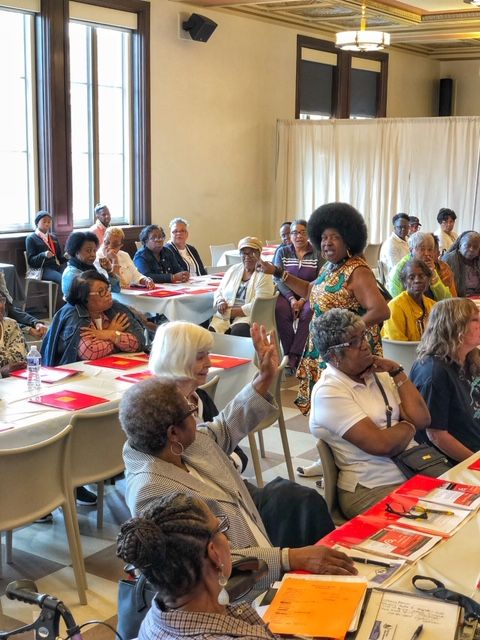
As the pandemic continued to stress communities around the country, the FDA’s Center for Drug Evaluation and Research turned to the PATIENTS Program to conduct interviews with Baltimore-area residents to understand attitudes, beliefs, and values around testing for COVID-19 among six underrepresented populations. Mullins joined Michelle Tarver, MD, PhD, acting deputy director of the FDA’s Office of Strategic Partnerships and Technology Innovation and director of its Patient Science and Engagement Program, in informing alumni and friends of UMSOP about the collaborative efforts between the PATIENTS Program and FDA staff to understand perspectives around COVID-19 testing.
Through the pandemic programming pivots, the PATIENTS Program has not lost sight of what makes it special. In addition to the research, outreach workers, staff, students, and postdoctoral fellows, it’s the patients from the community who use their voices to help researchers understand what it’s like to live with a disease who have transformed the way research is conducted at UMB. In recognition of their impact on making research more patient-centered, they earn the honorary title “PATIENTS Professors.”
Many leading academic institutions; local, state, and federal government agencies; foundations; and private sector firms have asked Mullins and the PATIENTS Program to explain their “secret sauce” for such an authentic community-academic partnership, and it’s the PATIENTS Professors who are truly the backbone for building a supportive relationship.
Building a Bridge
Working with local residents to develop a bidirectional learning model for successful research partnerships takes time and money. However, building relationships is not something that funding agencies typically allow on grants and contracts, so the PATIENTS Program relies on individual philanthropy to cover those costs. The UMB Foundation recently supported the PATIENTS Bridge fundraising event, which described how the PATIENTS Program is a bridge between neighborhoods in West Baltimore and researchers at UMB.
The PATIENTS Bridge fundraiser kicked off with the voice of a patient describing her longstanding relationship with Mullins and the PATIENTS Program. She said that she felt her voice was heard and reflected on how research was conducted by the program. Not only do patients learn from UMB how to be healthy, but PATIENTS Professors also describe their challenges as patients to teach researchers how to make research more meaningful and accessible to patients. The event featured two panel discussions that addressed the four pillars of health: physical health, mental health, spiritual health, and financial health. These pillars support a bridge to holistic health for all people. For more information on the PATIENTS Bridge fundraiser, click here.
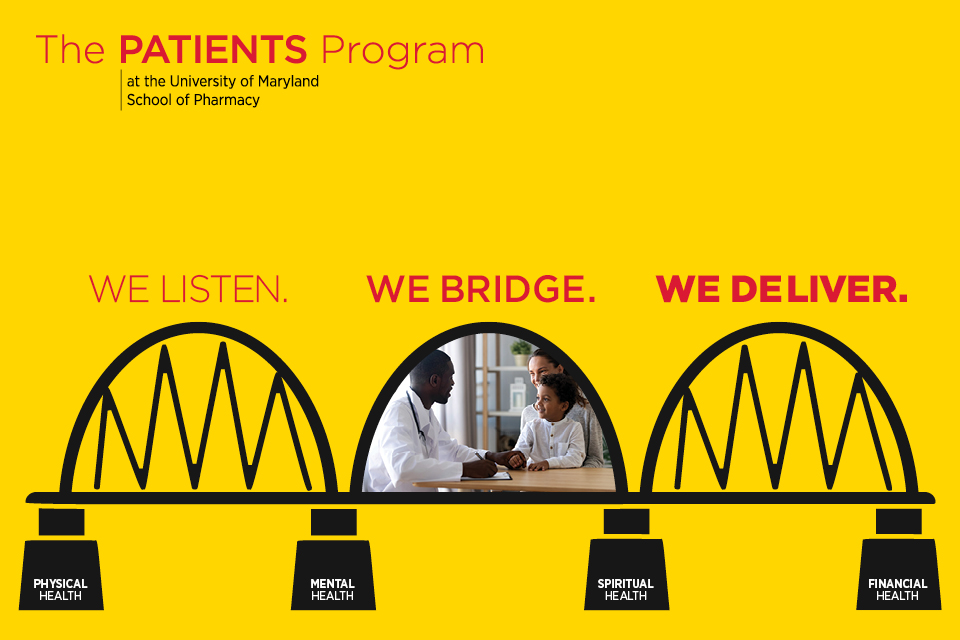
The PATIENTS Program was deeply moved by the more than 50 Baltimore residents who made donations during the fundraiser, including patients who were involved in research studies supported by the program. Now, as we continue to navigate a pandemic, vaccine distribution, and rebuilding our way of life, we know the PATIENTS Program will be a pillar of connection and safety in the community.
To continue building on our successful model, the program hopes that people will be inspired and willing to offer monetary support. If you are willing to make a philanthropic investment to ensure that the PATIENTS Program continues to support research that informs evidence-based decision-making by patients and their health care providers, please donate at this link. If you are interested in learning more about the PATIENTS Program or how you can support the PATIENTS Academy to train more PATIENTS Professors, contact Dr. Mullins at Daniel.Mullins@rx.umaryland.edu.


